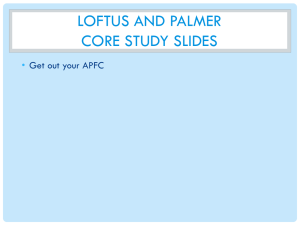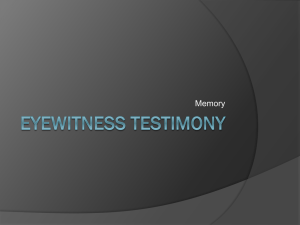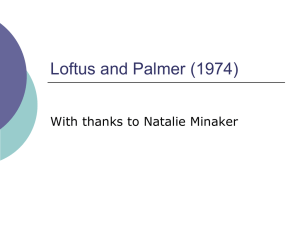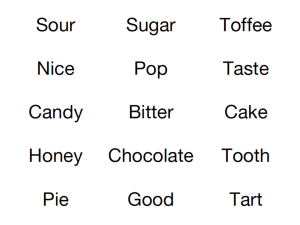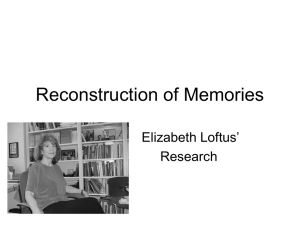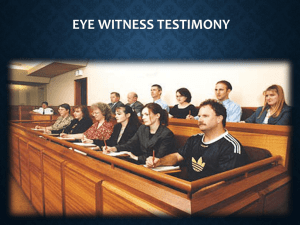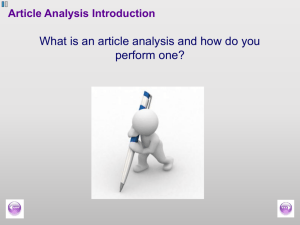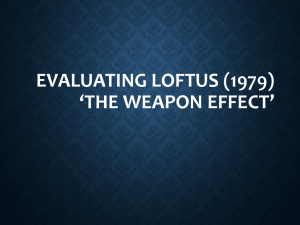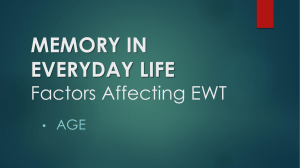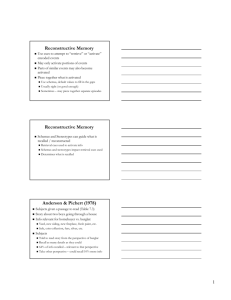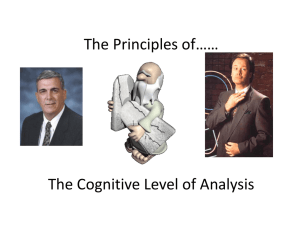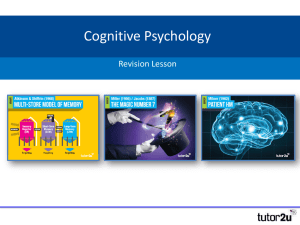EWT SJ - The Grange School Blogs
advertisement
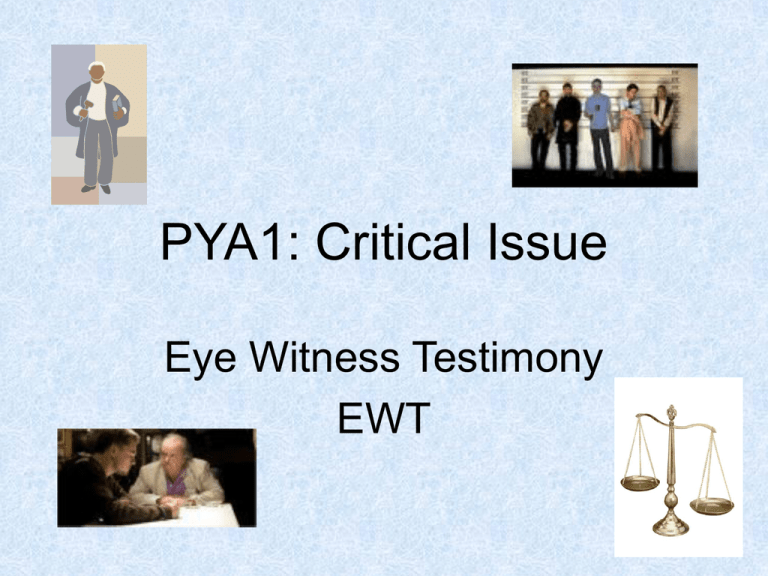
PYA1: Critical Issue Eye Witness Testimony EWT Eye Witness Testimony EWT The statements provided by witnesses of a crime or situation which help to establish the facts and often convict criminals. BUT…. • Is a person’s memory of an event always accurate? • Can anything affect it? • Can we help to improve or restore it? • Can we rely on it in a court of law? Reconstructive Memory Bartlett (1932) Memory does not work like a camera! Memory is an active process. We weave in elements of existing knowledge and experience (schemas) Reconstructive Memory We form these elements into a coherent whole. This means what we actually remember may not be an accurate reproduction of the original stimulus. Schemas A packet of information about a thing. A cluster of related facts based on previous experiences. Why do we need schemas? • They help us to understand the world and situations. • They help us to fill in gaps. • They simplify the processing required. • Look at p32 of Exploring Psychology – Carmichael et al(1932) • The word given conjured up a set of expectations about the object Look at this picture Write down a description of what is happening in the picture Factors that affect reconstructive memory • Stereotypes - Allport and Postman (1947) Participants shown a cartoon of a black and a white man on a subway train. Most recalled that the black man had the razor in his hand. The razor was actually in the white man’s hand. (stereotype – more prone to violence). • Conclusion: When an actual perceptual fact doesn’t match our expectations, we trust our expectation more than the real situation. • We see what we expect to see and this forms the basis for the memory for an event. Factors that affect reconstructive memory • How witnesses are interviewed – leading questions, facial techniques, tone of voice of interview may unintentionally communicate their expectations (what they want to hear). Eye Witness Testimony Elizabeth Loftus (70’s) Research) Illustrated the reconstructive nature of memory. Star Study: Loftus and Palmer (1974) The role of misleading questions? In her research Loftus showed that memories can be affected by the wording of questions. A leading question is a question about an event that is phrased in such a way as to prompt a particular answer. Information is provided in the question (i.e. after the event) which may distort the accuracy of the memory. Do people believe EWT’s? One study by Loftus (1974) shows that people tend to believe a suspect is guilty if there is an eyewitness. So it is very important that psychologists find out why EWT is inaccurate and how to improve accuracy. Star Study: Loftus and Palmer (1974) Aim: To investigate the accuracy of memory for a car accident and to see whether leading questions affect accuracy. Procedure: Showed films of traffic accidents to 45 participants, then answered a series of questions about what they had seen. Participants divided into 5 groups – all filled in same questionnaire apart from on critical question* which was different for each group relating to estimate of speed when cars ‘hit’ (smashed into, collided with, bumped into, contacted) each other. Mean speed calculated for each group. * About how fast were the cars going when they ….. each other? Loftus and Palmer (74) Read about this classic research on p 33 of Exploring Psychology Draw a graph of the results in tables 2.1 and 2.2. What conclusion can be drawn from this research? What does is suggest about the accuracy of EWT? Any problems with this piece of research? Star Study: Loftus and Palmer (1974) Findings: The mean speed varied significantly between groups. ‘smashed’ – approx 41mph, ‘collided’ – approx 40mph, ‘bumped’ – approx 38mph, ‘ ‘hit’ – approx 34mph, ‘contacted’ – approx 32mph Conclusion: The wording of a question can affect the accuracy of the answer. Star Study: Loftus and Palmer (1974) Criticisms: Loftus has made a huge contribution to our understanding of EWT and her research is rigorous. Participants all students – not a repesentative sample. They might have guessed what was expected – demand characteristics. People were expecting to witness a car accident. In real life an accident is unexpected. Real eyewitnesses are likely to be emotionally affected and know their testimony could have serious consequences. (Foster et al (1994) – witnesses more accurate in recalling memory of a bank robbery when they were led to believe their testimony would influence a real trial.) Other research by Loftus et al • Loftus and Zanni (1975) – Showed 2 groups a film of a car accident. More participants remembered a non-existent broken headlight in the group that were asked – ‘Did you see the broken headlight?’, rather than ‘Did you see a broken headlight?’ • A criticism of these types of studies is that they are artificial.
